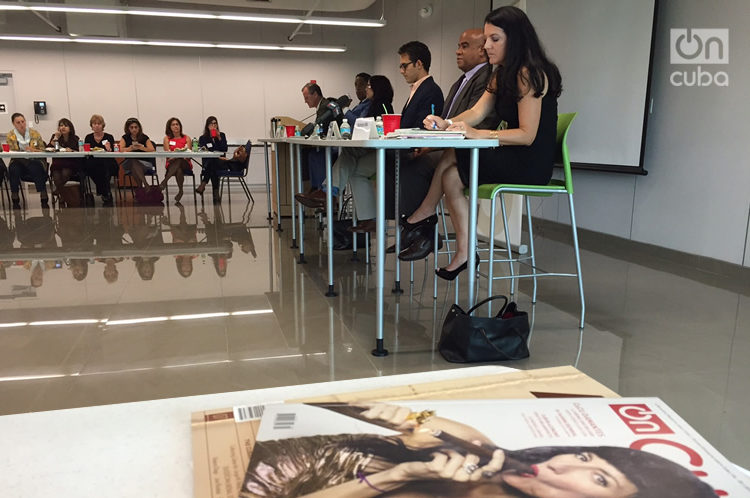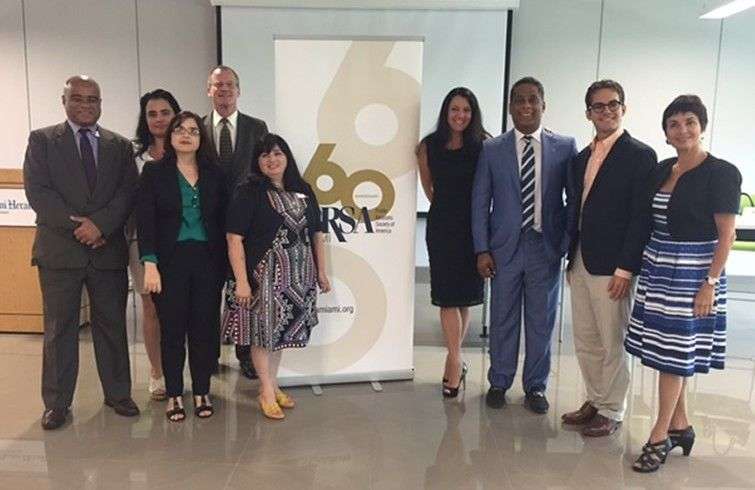Members of U.S. media organizations took part this week in a panel discussion held in Miami under the title “Communicating a Changing Cuba.”
The negotiations for the re-establishment of relations between the United States and Cuba have generated a great deal of interest on the island, facing media groups and outlets with new challenges when covering a myriad of sectors and angles.
Moderating the panel was Douglas Barnes, CEO of Barnes Global Consulting and former Public Affairs Officer at the U.S. Interests Section in Havana.
The panelists were Hugo Cancio, CEO of Fuego Media Enterprises and Publisher and Editor in Chief of OnCuba Magazine and ArtCuba Magazine; Nora Gámez Torres, a reporter for the Miami Herald/Nuevo Herald; Alejandro González, overseer of growth and partnerships for 14ymedio; Omar López Montenegro, talk show host at Radio Martí; and Patricia Vila, media relations expert and former manager of CNN’s Havana Bureau.
The participants presented on their professional experiences in the coverage of Cuba-related issues and the role of the media in the new context of U.S.-Cuba relations.
They exchanged on the alternative distribution networks currently operating in Cuba, such as the so-called “Weekly Package” –a compilation of information that is downloaded and distributed weekly, and that can be copied to external hard drives at different distribution points all over the country for a small fee.
Other relevant topics were censorship, the impact of the December 17 announcements on media work, and whether there is or not an ongoing discussion on the quality of journalism and communication.
In response to Montenegro’s criticism of Cuban state-run media and his comments on the lack of freedom of the press on the island, Hugo Cancio concurred that there is a need for more transparency, but pointed out that there is the political will to change that, and that actual steps have been taken in that direction.
“We’ve witnessed how the levels of tolerance have broadened, and new media outlets are emerging on the web, such as La Chiringa de Cuba, Cartas desde Cuba, 14ymedio, etc.,” he explained.
“We can point out the need for a more critical state-run press, one that is more open and objective,” added Cancio, “but it’s also important to note that Radio Marti and TV Marti cannot be considered regular media outlets, but tools to promote subversion, which are funded by a foreign government to overthrow the Cuban government.”
Organized by the Public Relations Society of America, this panel discussion will be the first of a series of events that will be conducted through the year to promote dialogue and awareness on the Cuban reality.












